Professor Avner Offer (Oxford)
 ‘When to Stop?’
‘When to Stop?’
Avner Offer was the Chichele Professor of Economic History at the University of Oxford from 2000 to 2011. His most recent book, The Challenge of Affluence: Self-control and Well-Being in the United States and Britain since 1950 (OUP, 2006), is a comparative study of consumption and well-being, applying a dynamic conception of myopic choice to evaluate the experience of affluence in the two countries. Currently he is writing a book on ‘From Social Democracy to Market Liberalism’, the shift of policy norms from social solidarity to market individualism during the last four decades. He is an Emeritus Fellow of All Souls College, Oxford and a Fellow of the British Academy.
Dr Tracey Potts (Nottingham)
‘Undoing the Maths: Notes towards a genealogy of procrastination’
 Tracey Potts is Lecturer in Critical Theory and Cultural Studies at the University of Nottingham and Visiting Scholar at Wolfson College, Oxford (2013-14). She is currently working on a cultural biography of clutter and procrastination entitled Neither Use Nor Ornament, for which she has been awarded a Leverhulme Research Fellowship.
Tracey Potts is Lecturer in Critical Theory and Cultural Studies at the University of Nottingham and Visiting Scholar at Wolfson College, Oxford (2013-14). She is currently working on a cultural biography of clutter and procrastination entitled Neither Use Nor Ornament, for which she has been awarded a Leverhulme Research Fellowship.
Dr Mrinalini Greedharry (Laurentian, Ontario)
 ‘Between a Rock and a Hard Place: Figuring procrastination as tactic’
‘Between a Rock and a Hard Place: Figuring procrastination as tactic’Mrinalini Greedharry teaches literary theory and postcolonial studies in the Department of English, Laurentian University, Canada. She is the author of Postcolonial Theory and Psychoanalysis (Palgrave, 2008) and has kept an irregular blog about her own procrastination since 2011 entitled ‘Thinking from here to there’.
Anna Della Subin (Independent)
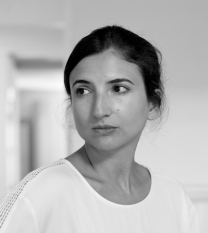 Anna Della Subin writes about sleepwalkers, grave worship, animal rights in Cairo, mummies, imperial Ethiopian court etiquette, visions of the flood, thirteenth-century occulists, 300-year naps, resurrection, men becoming gods, and gods becoming men. Her work has appeared in Harper’s, The White Review, BOMB, Jadaliyya, and The Paris Review Daily, among other publications. She is also a contributing editor at the Middle Eastern art & culture magazine Bidoun. She studied philosophy and classics at the University of Chicago and religion at Harvard.
Anna Della Subin writes about sleepwalkers, grave worship, animal rights in Cairo, mummies, imperial Ethiopian court etiquette, visions of the flood, thirteenth-century occulists, 300-year naps, resurrection, men becoming gods, and gods becoming men. Her work has appeared in Harper’s, The White Review, BOMB, Jadaliyya, and The Paris Review Daily, among other publications. She is also a contributing editor at the Middle Eastern art & culture magazine Bidoun. She studied philosophy and classics at the University of Chicago and religion at Harvard.
Rebecca Birrell (Oxford)
 ‘“Coming Soon”: Rachael Allen, Sam Riviere and a poetics of procrastination’
‘“Coming Soon”: Rachael Allen, Sam Riviere and a poetics of procrastination’
Rebecca Birrell is a student on the Women’s Studies MSt at the University of Oxford, funded by an AHRC Studentship. She graduated in 2012 from University College London with a BA in English Literature and Language.
Dr Will May (Southampton)
‘Porlock’s Whim: Poetry as procrastination’
 Will May is Senior Lecturer in English at the University of Southampton. He is the author of Postwar Literature: 1950-1990 (Longman, 2010), Stevie Smith and Authorship (OUP, 2010) and the editor of The Collected Poems and Drawings of Stevie Smith (Faber, 2014). His current project is a cultural history of poetry and whimsy.
Will May is Senior Lecturer in English at the University of Southampton. He is the author of Postwar Literature: 1950-1990 (Longman, 2010), Stevie Smith and Authorship (OUP, 2010) and the editor of The Collected Poems and Drawings of Stevie Smith (Faber, 2014). His current project is a cultural history of poetry and whimsy.
Alex Belsey (King’s College London)
‘Angst, Apathy, and Indulgence in the Studio of Keith Vaughan’
A lex Belsey is a PhD candidate in English Research at King’s College London. His doctoral research is an archival project on the journal of British painter Keith Vaughan (1912-77). Alex is affiliated with King’s Centre for Life-Writing Research and sits on the steering committee of the Postgraduate Memory Network. He is currently co-editing the fourth issue of Stet, the online postgraduate research journal for the English Department at King’s.
lex Belsey is a PhD candidate in English Research at King’s College London. His doctoral research is an archival project on the journal of British painter Keith Vaughan (1912-77). Alex is affiliated with King’s Centre for Life-Writing Research and sits on the steering committee of the Postgraduate Memory Network. He is currently co-editing the fourth issue of Stet, the online postgraduate research journal for the English Department at King’s.
Oliver Neto (Bristol)
‘“Preparatory to Anything Else”…: Joyce, boredom and creative procrastination’
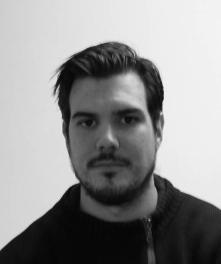 Oliver Neto is a PhD student in English at the University of Bristol. His AHRC-funded project addresses the relationship between boredom and narrative in modernist fiction. His current focus is on the work of James Joyce. Oliver completed his MA at UCL, and his BA at the University of Sussex.
Oliver Neto is a PhD student in English at the University of Bristol. His AHRC-funded project addresses the relationship between boredom and narrative in modernist fiction. His current focus is on the work of James Joyce. Oliver completed his MA at UCL, and his BA at the University of Sussex.
Johannes Schlegel (Potsdam)
‘Procrastination as Deceleration in Shakespeare’s The Tempest’
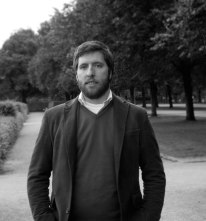 Johannes Schlegel teaches English literature and cultural studies at Potsdam University, Germany. He has published on literary and cultural theory, Romanticism, and popular culture. Within a couple of weeks, he will hand in his PhD thesis on evil in Romantic literature. In his next project, he will address early modern cultures of speed.
Johannes Schlegel teaches English literature and cultural studies at Potsdam University, Germany. He has published on literary and cultural theory, Romanticism, and popular culture. Within a couple of weeks, he will hand in his PhD thesis on evil in Romantic literature. In his next project, he will address early modern cultures of speed.
Lilith Dornhuber de Bellesiles (UC Berkeley)
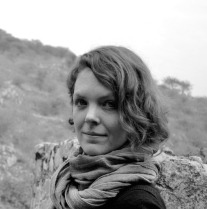 Lilith Dornhuber de Bellesiles is a PhD student in the Rhetoric Department at UC Berkeley. After graduating from Smith College, Lilith held a Research Fulbright in Germany, then received a graduate diploma in philosophy from the University of St Andrews and MSt in women’s studies from the University of Oxford.
Lilith Dornhuber de Bellesiles is a PhD student in the Rhetoric Department at UC Berkeley. After graduating from Smith College, Lilith held a Research Fulbright in Germany, then received a graduate diploma in philosophy from the University of St Andrews and MSt in women’s studies from the University of Oxford.
Kamel Boudjemil (Sorbonne, Paris)
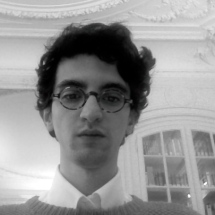 ‘From Procrastination to Revolution: Guy Debord, the Situationist International, and the last radical avant-garde’
‘From Procrastination to Revolution: Guy Debord, the Situationist International, and the last radical avant-garde’
Kamel Boudjemil is currently completing his masters in law at the Sorbonne and will start a PhD in Political Science and International Relations on the subject of human rights and corruption in the Arab world at CERI, Sciences Po, Paris.
Pelle Valentin Olsen (Oxford)
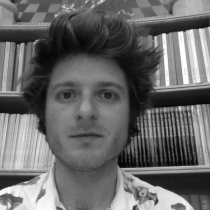 ‘Idle Days in Baghdad: The emergence of bourgeois time and the coffee shop as a site of procrastination’
‘Idle Days in Baghdad: The emergence of bourgeois time and the coffee shop as a site of procrastination’
Pelle Valentin Olsen is an MPhil candidate in Modern Middle Eastern History at St Antony’s College. He is interested in Middle Eastern Jewish literature, thought and intellectual history. In the fall he is moving to the United States to start a PhD at the University of Chicago.
Susanne Bayerlipp (Ludwig-Maximilians-University, Munich)
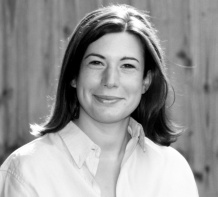 Susanne Bayerlipp teaches English Literature at the Ludwig-Maximilians University, Munich. She is currently working on her PhD thesis ‘William Thomas and the Culture(s) of Translation in the mid-Tudor Period’ and has published two articles on this topic: ‘Translating Iconoclasm: William Thomas’s The Perygrine and The History of Italy’ in Anglia 130(3) (2012), and ‘Early Modern Negotiations of the Questione della Lingua in William Thomas and the Florios’ in Gabriela Schmidt (ed.), Elizabethan Translation and Literary Culture (Berlin, 2013).
Susanne Bayerlipp teaches English Literature at the Ludwig-Maximilians University, Munich. She is currently working on her PhD thesis ‘William Thomas and the Culture(s) of Translation in the mid-Tudor Period’ and has published two articles on this topic: ‘Translating Iconoclasm: William Thomas’s The Perygrine and The History of Italy’ in Anglia 130(3) (2012), and ‘Early Modern Negotiations of the Questione della Lingua in William Thomas and the Florios’ in Gabriela Schmidt (ed.), Elizabethan Translation and Literary Culture (Berlin, 2013).
Dr Barbara Leckie (Carleton, Ontario)
 Barbara Leckie is an Associate Professor cross-appointed in the English Department and the Institute for the Comparative Study of Literature, Art, and Culture at Carleton University, Ottawa, Canada. Her publications include Culture and Adultery: the Novel, the Newspaper, and the Law, 1857-1914 and Sanitary Reform in Victorian Britain: End of Century Assessments and New Directions (an edited collection of documents on sanitary architecture and reform), as well as many articles on Victorian print culture. She has recently completed ‘Open Houses: The Architectural Idea, the Rise of the Novel, and Nineteenth-Century Modernity’ and is now working on a new project on Victorian procrastination.
Barbara Leckie is an Associate Professor cross-appointed in the English Department and the Institute for the Comparative Study of Literature, Art, and Culture at Carleton University, Ottawa, Canada. Her publications include Culture and Adultery: the Novel, the Newspaper, and the Law, 1857-1914 and Sanitary Reform in Victorian Britain: End of Century Assessments and New Directions (an edited collection of documents on sanitary architecture and reform), as well as many articles on Victorian print culture. She has recently completed ‘Open Houses: The Architectural Idea, the Rise of the Novel, and Nineteenth-Century Modernity’ and is now working on a new project on Victorian procrastination.
Dr Susan Machum (St Thomas, New Brunswick)
 Susan Machum is a struggling procrastinator—even when she succeeds at overcoming challenges and pushes past stresses and anxieties to meet deadlines, she soon finds herself falling off the wagon and needing to climb the hill again. Obviously, she has overcome her negative spirals at various points in her life. For example, she obtained her PhD from the University of Edinburgh in 1999; is an Associate Professor at St Thomas University in Fredericton, Canada and has been holding a Canada Research Chair in Rural Social Justice since 2006. Nevertheless, the need to overcome procrastination remains a constant feature of her life. She welcomes the idea of discussing this topic and learning more about it with other academics.
Susan Machum is a struggling procrastinator—even when she succeeds at overcoming challenges and pushes past stresses and anxieties to meet deadlines, she soon finds herself falling off the wagon and needing to climb the hill again. Obviously, she has overcome her negative spirals at various points in her life. For example, she obtained her PhD from the University of Edinburgh in 1999; is an Associate Professor at St Thomas University in Fredericton, Canada and has been holding a Canada Research Chair in Rural Social Justice since 2006. Nevertheless, the need to overcome procrastination remains a constant feature of her life. She welcomes the idea of discussing this topic and learning more about it with other academics.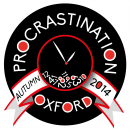
Excellent way forward re-O. Neto’s thesis